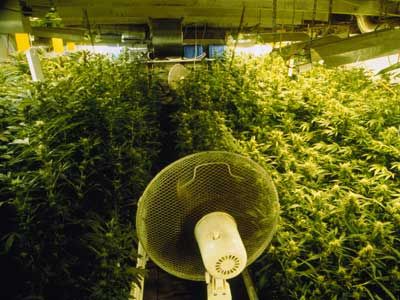Ganja. Bud. Herb. Call it what you will, there's no question that marijuana has become a divisive issue in U.S. politics. Whether for its role in supporting drug cartels, its tendency to worsen the impact of unbalanced drug laws, or simply its position in the center of the drug legalization movement, the sticky icky has become a rather sticky wicket.
Although banned by the U.S. government in 1937, marijuana has been the subject of much legal wrangling since the 1980s, gradually opening the way for medicinal use in 20 states and the District of Columbia as of January 2014. Colorado and Washington also have approved recreational use. Meanwhile, more than a dozen states have decriminalized holding of small quantities of weed [sources: Rabin, Cassidy].
Advertisement
Even though it's celebrated on 4/20 each year and support for legalization has doubled in the past 20 years or so, usage has remained relatively flat [source: Saad]. According to a July 2013 Gallup poll, roughly 38 percent of Americans had tried marijuana, and 7 percent, or 22 million people, partook of the drug. The United States drug market is one of the world's most commercially viable and attracts drug traffickers from every corner of the globe. Depending on location and quality of product, marijuana can cost anywhere from $1.77-$17.66 per gram ($800-$8,000 per pound) [source: Wilson].
Typically, marijuana refers to the buds and leaves of the Cannabis sativa or Cannabis indica plants. The cannabis plant contains more than 500 chemicals, including delta-9-tetrahydrocannabinol (THC), the main psychoactive chemical [source: Mehmedic et al.]. Cannabis impairs memory during and between uses, although the restorative effects of long-term abstinence remain unclear. In addition, during use, it adversely affects motor coordination, attention and judgment, increases heart rate and raises levels of anxiety. Studies also show that marijuana smoke contains irritants and cancer-causing chemicals typically associated with cigarettes [sources: Hall and Solowij; NIDA]. In this article, you will learn about marijuana, why this drug is so popular and what effects it has on your mind and body.


